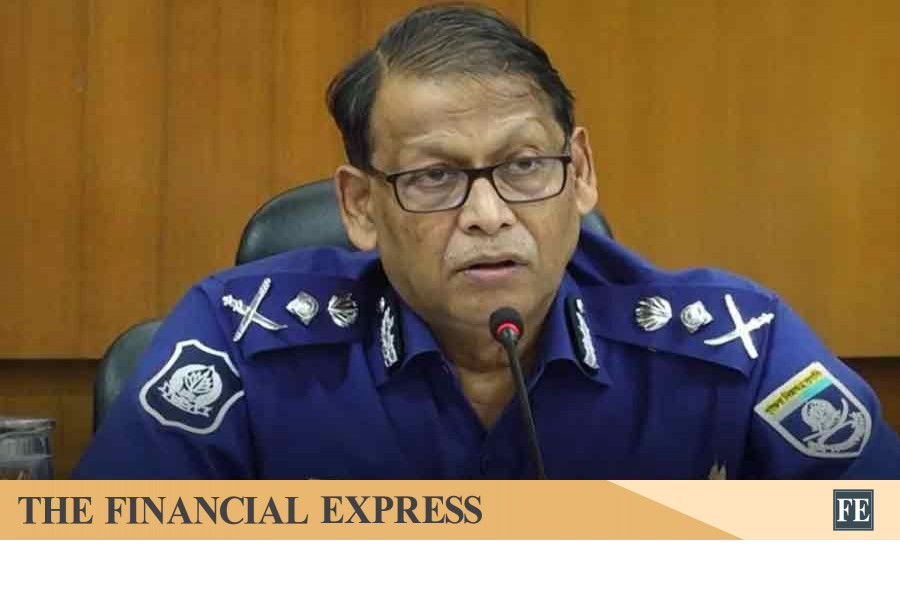Saif
Senior Member
- Joined
- Jan 24, 2024
- Messages
- 17,262
- Likes
- 8,334
- Nation

- Residence

- Axis Group


Police to maintain neutrality, professionalism in national election: IGP
Inspector General of Police Baharul Alam on Tuesday said police will uphold professionalism, neutrality and a strong sense of responsibility during the national parliamentary election. He made the remarks while addressing Assistant Superintendent of Police (ASP) probationers at the Hall of Integri
Police to maintain neutrality, professionalism in national election: IGP
UNB
Jan 27, 2026 21:45
Updated :
Jan 27, 2026 21:45

Inspector General of Police Baharul Alam on Tuesday said police will uphold professionalism, neutrality and a strong sense of responsibility during the national parliamentary election.
He made the remarks while addressing Assistant Superintendent of Police (ASP) probationers at the Hall of Integrity at Police Headquarters in the morning.
The programme was attended by ASP probationers of the 27th BCS (Police) batch, who were initially selected in 2008 and joined recently, along with officers from the 28th and 43rd batches.
The IGP said efforts are underway to raise morale within the force and rebuild public trust.
Congratulating the probationers, he said their joining marks not only a personal success but also the restoration of their rightful position in the service.
Referring to emerging challenges, he said cybercrime is rising and public opinion is increasingly shaped through social media. “In this context, policing can no longer depend only on physical presence or traditional methods.”
He stressed the need for intelligence-based policing, global awareness and technological skills, saying integrity and professionalism must also be ensured in the digital space.
Urging the probationers to prepare themselves as future leaders of Bangladesh Police, the IGP asked them to undergo training at the Bangladesh Police Academy with strict discipline, punctuality and adherence to rules.
Of the probationers, 60 are from the 27th batch, one from the 28th batch and six from the 43rd batch.
The officers of the 27th BCS (Police) batch received their appointments after a prolonged legal process, having been deprived of recruitment earlier.
Senior officials of the police headquarters were also present at the event.
UNB
Jan 27, 2026 21:45
Updated :
Jan 27, 2026 21:45
Inspector General of Police Baharul Alam on Tuesday said police will uphold professionalism, neutrality and a strong sense of responsibility during the national parliamentary election.
He made the remarks while addressing Assistant Superintendent of Police (ASP) probationers at the Hall of Integrity at Police Headquarters in the morning.
The programme was attended by ASP probationers of the 27th BCS (Police) batch, who were initially selected in 2008 and joined recently, along with officers from the 28th and 43rd batches.
The IGP said efforts are underway to raise morale within the force and rebuild public trust.
Congratulating the probationers, he said their joining marks not only a personal success but also the restoration of their rightful position in the service.
Referring to emerging challenges, he said cybercrime is rising and public opinion is increasingly shaped through social media. “In this context, policing can no longer depend only on physical presence or traditional methods.”
He stressed the need for intelligence-based policing, global awareness and technological skills, saying integrity and professionalism must also be ensured in the digital space.
Urging the probationers to prepare themselves as future leaders of Bangladesh Police, the IGP asked them to undergo training at the Bangladesh Police Academy with strict discipline, punctuality and adherence to rules.
Of the probationers, 60 are from the 27th batch, one from the 28th batch and six from the 43rd batch.
The officers of the 27th BCS (Police) batch received their appointments after a prolonged legal process, having been deprived of recruitment earlier.
Senior officials of the police headquarters were also present at the event.





































